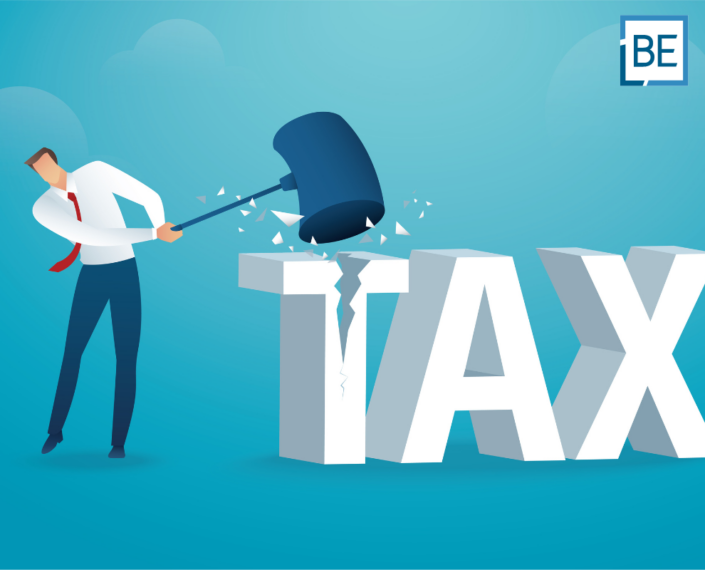création de votre entreprise
Comment créer une franchise en Thaïlande
La création d'une entreprise en franchise en Thaïlande peut être une option intéressante pour les investisseurs locaux et étrangers. La Thaïlande offre de nombreuses opportunités à ceux qui souhaitent se lancer dans la franchise. On estime en effet qu'il existe plus de 400 franchises et plus de 12 000 franchisés dans le pays.
Dans cet article, nous allons explorer les aspects clés de la création d'une franchise en Thaïlande, y compris le cadre juridique, les types d'entreprises franchisées et les avantages pour les franchiseurs et les franchisés.
Points clés
- La franchise est une structure commerciale populaire en Thaïlande, offrant différents modèles aux investisseurs.
- L'accord de franchise est un document essentiel qui définit les droits et les responsabilités du franchiseur et du franchisé pour l'entreprise.
- Les franchises présentent des avantages significatifs tant pour le franchisé que pour le franchiseur.
Qu'est-ce qu'une franchise en Thaïlande ?
Une franchise est un modèle commercial qui permet à une entreprise établie, le franchiseur, d'accorder à une autre partie, le franchisé, le droit d'exploiter une entreprise en utilisant sa marque, son modèle commercial et sa propriété intellectuelle.
La franchise présente plusieurs avantages pour les deux parties concernées. Pour le franchiseur, c'est l'occasion d'étendre sa marque à de nouveaux marchés avec un investissement minimal. Pour le franchisé, il s'agit d'un modèle commercial reconnu et d'un soutien de la part du franchiseur, ce qui réduit les risques liés au démarrage d'une nouvelle entreprise à partir de rien.
La franchise peut-elle être opérée en Thaïlande ?
Les franchises sont un modèle d'entreprise très répandu en Thaïlande. Toutefois, il n'existe pas de lois spécifiques régissant les transactions de franchise des propriétaires d'entreprise et le domaine est principalement régi par les lois civiles et commerciales. Ces lois établissent le cadre juridique des accords de franchise et protègent les droits des franchiseurs et des franchisés.
- La Thaïlande dispose également de lois spécifiques pour protéger la propriété intellectuelle du franchiseur. Ces lois sont les suivantes :
- La loi sur les marques qui protège le franchiseur contre toute utilisation abusive de sa marque.
- La loi sur le droit d'auteur qui protège le franchiseur contre toute violation de son droit d'auteur.
- La loi sur le secret commercial peut être invoquée pour protéger les secrets commerciaux essentiels d'une entreprise.
Il est important de noter que la Thaïlande est en train de promulguer une législation spécifique pour les franchises, appelée "Franchise Business Act".
Les étrangers peuvent-ils détenir 100 % d'une franchise en Thaïlande ?
In Thailand, the ability for foreigners to own 100% of a franchise depends on the specific business activity of the franchise. There are no specific laws that govern franchise transactions in Thailand, but the rights and obligations of parties involved in a franchise are protected by existing Thai laws.
Les détenteurs de franchises étrangères ne sont pas assujettis aux restrictions légales thaïlandaises applicables aux acteurs étrangers, telles que la loi sur les entreprises étrangères et d'autres réglementations locales et permis. Ces restrictions sont plutôt gérées par le franchisé, et non par le franchiseur.
Toutefois, si un franchisé est intégralement ou majoritairement détenu par des étrangers, la plupart des activités de franchise sont limitées, nécessitant l'obtention d'une licence d'entreprise étrangère pour opérer. Dans ce scénario, il est possible d'utiliser une société thaïlandaise possédant au moins un actionnaire thaïlandais détenant plus de 50 % des parts.
Pour en savoir plus :
La propriété étrangère à 100 % d'une entreprise en Thaïlande
Quels sont les différents types de franchises disponibles en Thaïlande ?
La Thaïlande offre une variété de franchises pour les investisseurs potentiels, comprenant :
Les franchises locales
Ces franchises permettent au franchisé de créer une entreprise dans une zone géographique spécifique, comme une ville donnée.
Les franchises régionales
Ces franchises offrent la possibilité de représenter une marque sur un plan régional, ce qui signifie qu'elles peuvent être établies dans diverses régions de la Thaïlande.
Les franchises internationales
Ces franchises permettent aux investisseurs étrangers de représenter des marques internationales en Thaïlande. Par exemple, une chaîne de restauration rapide américaine qui ouvre une succursale en Thaïlande.
Les franchises à unité unique et à unités multiples
Les franchises à unité unique fonctionnent dans un seul emplacement, tandis que les franchises à unités multiples offrent la possibilité au franchisé de gérer plusieurs points de vente ou emplacements.
Quels sont les avantages de la création d'une entreprise en franchise en Thaïlande ?
La création d'une entreprise en franchise en Thaïlande offre plusieurs avantages aux investisseurs locaux et étrangers :
Accès à un modèle d'entreprise établi
L'un des principaux avantages de la franchise est l'accès à un modèle d'entreprise établi. Les franchisés bénéficient des systèmes, des processus et de la notoriété de la marque du franchiseur, ce qui réduit les risques par rapport à la création d'une entreprise indépendante.
Formation et assistance
Les franchiseurs offrent généralement une formation initiale et un soutien continu aux franchisés. Cela peut inclure des programmes de formation, des conseils opérationnels, un soutien en marketing et l'accès à un réseau de franchisés. Cette assistance est précieuse pour les nouveaux propriétaires d'entreprise ou ceux qui ne sont pas familiers avec le marché local.
Risques commerciaux réduits
La franchise offre un niveau de sécurité plus élevé par rapport à la création d'une nouvelle entreprise. Les marques établies, la clientèle existante et les systèmes opérationnels du franchiseur aident à réduire les risques et à augmenter les chances de réussite.
Possibilités d'expansion du marché
Pour les franchiseurs, l'expansion par le biais de la franchise leur permet de pénétrer de nouveaux marchés sans investissement initial considérable. En s'appuyant sur les connaissances et les ressources locales des franchisés, les franchiseurs peuvent élargir leur base de clients et renforcer leur présence sur le marché.
Quelles sont les options de rémunération et les coûts de fonctionnement d'une franchise ?
Lorsqu'une entreprise envisage une franchise, il est important de comprendre les modalités de rémunération et les coûts opérationnels associés. Tout d'abord, un droit d'entrée est généralement requis lors de la conclusion du contrat de franchise. Cette exigence financière est une considération majeure dans le modèle de franchise, car elle confère au franchisé le droit d'exploiter l'entreprise sous la marque du franchiseur.
En ce qui concerne les contrats de franchise, le propriétaire de la franchise a généralement droit à un pourcentage du chiffre d'affaires généré par le franchisé. Il est essentiel de noter que les redevances perçues peuvent être soumises à une retenue à la source (WHT), donc la structuration du contrat de franchise doit être minutieusement élaborée pour éviter toute incidence fiscale potentielle.
D'autres frais sont également courants dans les relations de franchise en Thaïlande. Ils comprennent les redevances initiales, les redevances permanentes (ou redevances de gestion), les contributions publicitaires, les dépenses publicitaires obligatoires, ainsi que d'autres frais de franchise habituels.
En outre, les franchisés peuvent être tenus de couvrir les frais liés à la demande et au maintien des licences nécessaires pour l'importation et la distribution de produits réglementés par le Département thaïlandais des médicaments essentiels et de l'alimentation, conformément aux directives du franchiseur. Bien que la législation thaïlandaise actuelle ne spécifie pas de restrictions sur les droits d'entrée, les redevances permanentes, les contributions publicitaires et les dépenses publicitaires obligatoires sont généralement considérées comme des redevances et sont donc sujettes à la réglementation fiscale en vigueur.
De plus, dans le cadre des fonctions opérationnelles, les franchisés sont souvent obligés de s'approvisionner en fournitures et en produits soit directement auprès du propriétaire de la franchise, soit auprès de fournisseurs désignés.
Qu'est-ce qu'un accord de franchise ?
En Thaïlande, un contrat de franchise implique deux parties principales : le franchiseur et le franchisé. Le franchiseur détient le modèle d'entreprise, la marque et la propriété intellectuelle, et accorde au franchisé le droit d'exploiter une entreprise en utilisant ses systèmes, sa propriété intellectuelle et son assistance. Le franchisé acquiert la licence de franchise et exploite l'entreprise sous la direction du franchiseur.
Le contrat de franchise établit les droits et les obligations des deux parties. Il décrit les conditions dans lesquelles le franchisé exploitera l'entreprise et utilisera la propriété intellectuelle du franchiseur. Les contrats de franchise comprennent généralement les éléments suivants :
Détails des parties
Le contrat de franchise doit clairement indiquer les coordonnées du franchiseur et du franchisé, y compris leurs noms légaux, leurs coordonnées et tout autre détail pertinent.
Objet de l'accord de franchise
Le contrat doit décrire le modèle commercial, les systèmes et la propriété intellectuelle que le franchiseur concède au franchisé. Cela inclut le savoir-faire du franchiseur, ses marques, ses brevets et toute autre information exclusive.
Droits et obligations des parties
Le contrat de franchise doit clairement définir les droits et obligations du franchiseur et du franchisé. Cela inclut le droit du franchisé d'utiliser la propriété intellectuelle du franchiseur, l'obligation du franchiseur de fournir une formation et une assistance, ainsi que tout autre droit ou obligation pertinent.
Droit de franchise et les redevances
Le contrat doit préciser la redevance de franchise, qui correspond au paiement initial effectué par le franchisé au franchiseur pour obtenir le droit d'exploiter l'entreprise. Il doit également spécifier les redevances ou droits permanents que le franchisé doit verser au franchiseur pour l'utilisation continue de la marque et de l'assistance.
Durée et résiliation
Le contrat de franchise doit mentionner la durée du contrat, y compris les dates de début et de fin. Il doit aussi préciser les conditions dans lesquelles l'une ou l'autre des parties peut mettre fin au contrat, par exemple en cas de rupture du contrat ou de non-paiement des redevances.
Droits de renouvellement et de transfert
Le contrat doit prévoir la procédure de renouvellement si le franchisé souhaite continuer à exploiter l'entreprise après la période initiale. Il doit par ailleurs préciser les conditions ou exigences relatives au transfert de la franchise à une autre partie.
Règlement des litiges
Il est recommandé d'inclure dans le contrat de franchise une clause relative au règlement des litiges. Cette clause peut spécifier la méthode de résolution souhaitée, telle que l'arbitrage ou la médiation, pour résoudre tout conflit pouvant survenir entre le franchiseur et le franchisé.
Comment Belaws peut-il vous aider ?
Pour plus d'informations sur la création d'une franchise en Thaïlande, pourquoi ne pas discuter avec l'un de nos experts ?
Veuillez noter que cet article est fourni à titre d'information seulement et ne constitue pas un avis juridique.
Nos consultations durent jusqu'à une heure et sont menées par des juristes experts qui parlent couramment l'anglais, le français et le thaï.
Les consultations peuvent être organisées sur WhatsApp ou sur le Logiciel de Vidéoconférence de votre convenance. Une consultation avec l’un de nos experts juridiques est sans aucun doute le meilleur moyen d’obtenir toutes les informations dont vous avez besoin et de répondre à toutes les questions que vous pourriez avoir sur votre nouvelle entreprise ou votre projet.
150 USD
Jusqu'à 1 heure
Paiement en ligne (Paypal ou carte bancaire)
Les consultations juridiques peuvent être menées en anglais, en français ou en thaï.
Les consultations juridiques sont assurées par des des avocats expérimentés dans les domaines concernés.
Questions fréquemment posées
Qu'est-ce que la franchise et pourquoi est-elle populaire en Thaïlande ?
Le franchisage permet à une entreprise établie (le franchiseur) d'accorder à une autre partie (le franchisé) le droit d'exploiter une entreprise en utilisant sa marque et ses systèmes. En Thaïlande, le franchisage est populaire en raison de son cadre juridique établi, de son potentiel d'expansion du marché et de ses modèles d'entreprise éprouvés.
Les étrangers peuvent-ils détenir 100 % d'une franchise en Thaïlande ?
Les étrangers peuvent détenir 100 % d'une franchise en Thaïlande, en fonction de l'activité commerciale concernée. Toutefois, certaines restrictions peuvent s'appliquer et il est essentiel de bien connaître les lois, permis et règlements thaïlandais en vigueur.
Quels sont les types de franchises disponibles en Thaïlande ?
La Thaïlande propose différents types de franchises, notamment des franchises locales, régionales et internationales, ainsi que des franchises à une ou plusieurs unités, qui répondent à des préférences d'investissement et à des segments de marché divers.
What are the advantages of starting a franchise business in Thailand?
La création d'une franchise en Thaïlande permet de bénéficier d'un modèle d'entreprise établi, d'une formation et d'une assistance de la part du franchiseur, d'une réduction des risques commerciaux par rapport à une création ex nihilo et d'une possibilité d'expansion du marché avec un investissement initial minimal.
Qu'est-ce qu'un contrat de franchise et que contient-il ?
Un contrat de franchise est un contrat juridiquement contraignant entre le franchiseur et le franchisé. Il définit les droits et les obligations des deux parties, y compris les détails concernant les parties, l'objet du contrat, la redevance de franchise, la durée, la résiliation, les droits de renouvellement et les mécanismes de résolution des litiges.
Quelles sont les options de rémunération et les coûts de fonctionnement associés à une franchise ?
Les options de rémunération des franchises comprennent généralement des droits d'entrée, des redevances basées sur le chiffre d'affaires et divers frais opérationnels tels que les contributions publicitaires et les dépenses liées aux licences. La compréhension de ces coûts est essentielle pour une planification et une gestion financières efficaces.
Comment Belaws peut-elle vous aider à créer une franchise en Thaïlande ?
Belaws fournit des conseils juridiques experts et un soutien pour naviguer dans les complexités de la création d'une franchise en Thaïlande. De la rédaction des contrats de franchise au respect des lois et réglementations locales, notre équipe se consacre à faciliter un processus de franchisage sans heurts et couronné de succès.
Articles connexes
Abonnez-vous aujourd'hui
Abonnez-vous aujourd'hui
À notre newsletter pour les dernières actualités juridiques
en Asie du Sud-Est, les mises à jour de Belaws et
les offres spéciales sur nos services.
To our newsletter today for all the latest legal news in South East Asia,
Belaws updates and special promotions on our services.







